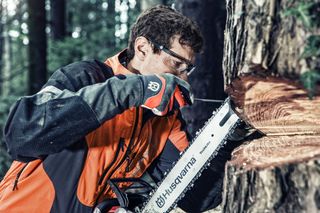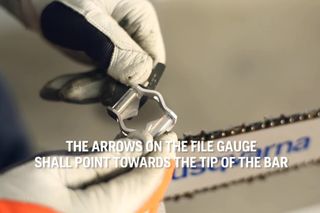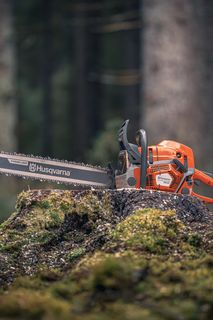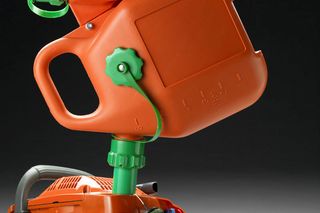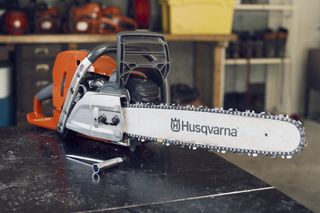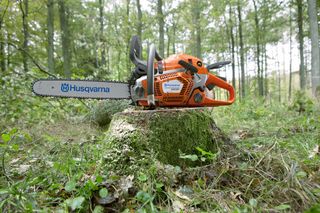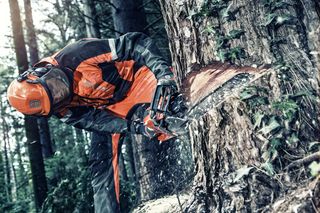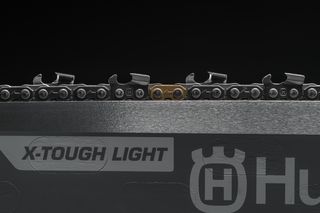How to Sharpen a Chainsaw with a File
Cutting with a dull chain leads to higher fuel consumption and excessive wear. You can easily avoid this by filing your chains regularly and correctly. Everything you need to know about sharpening your chainsaw is included here.
What do I need to file my chain?
These are the chainsaw sharpening tools you need to keep your chain sharp:
- Round file
- Flat file
- File gauge
- Stump vise
Remember that the round file and gauges are different for different chain types.
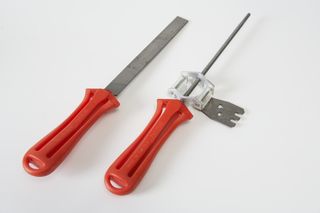
Filing angles
The cutters should be filed according to these angles:- Top plate filing angle
- Side plate cutting angle
- File down angle
- Depth gauge setting
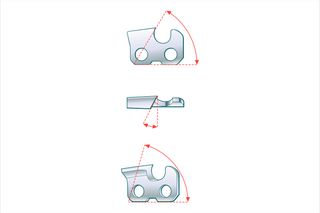
How often should the chain be filed?
A saw chain’s sharpness diminishes over time, even if you have avoided cutting into objects that reduce its sharpness (rock, soil, etc.). The chain becomes blunt. If the chain has cut against stone it is useless and must be sharpened immediately. If you use a chainsaw for much of the day, it is appropriate to sharpen the chain with a file each time you refuel. It’s easier to sharpen a little but often, rather than waiting a long time to file. You also get better precision and work more effectively.
How to file the chain?
We recommend using a Husqvarna file gauge for best filing results. Try to file away as little material as possible.
Start by finding the shortest cutter. All cutters should be filed to match the length of the shortest cutter.
- Place the filing gauge on the chain. The arrows on the filing gauge should point in the chain’s direction of rotation (towards the nose wheel). Make sure the gauge has contact with the chain.
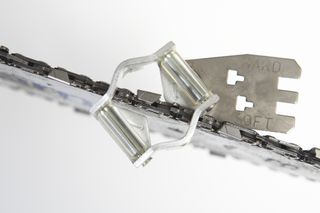
- Use the round file. Place the file at a 90° angle to the rollers on the filing gauge. File with both hands. The file should rest on both rollers. File the cutting tooth away from you with smooth strokes.
- Now proceed to file each tooth. Each cutting tooth is to be filed so that it is sharp. It is important that all the cutting teeth are of equal length.
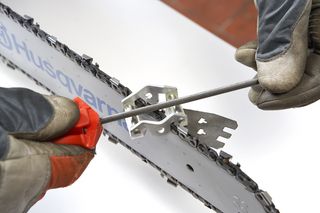
- Once you have finished filing all the cutting teeth on one side, loosen the vice and then attach the guide bar from the other direction. Then sharpen the cutting teeth in the same way from the opposite direction.
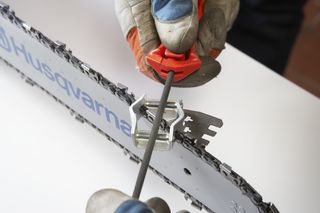
Filing in the forest
A useful tool to have when filing out in the field is a stump vise. Attach it to a stump or log and secure the guide bar like a normal vise. File according to the filing instructions.
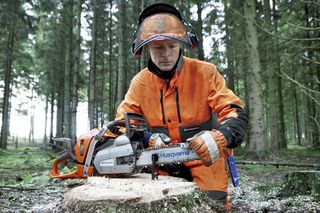
How to set the correct depth gauge?
The depth gauge setting determines how deep the cutting tooth will cut. If the depth gauge setting is set very low, the plane takes a very small amount of wood.
If the depth gauge is set too high the cutting tooth will cut too deeply into the wood. This creates a more aggressive cut resulting in high vibration. This also increases the risk of kickback and exposes the chainsaw to unnecessary stress.
Check the depth gauge every 3-5 times that you sharpen the chain during normal wear, and more often during excessive wear. Use the depth gauge tool and flat file to check and set the correct height. “Soft” and “Hard” stamped on the gauge refers to soft wood (conifers) and frozen or hard wood (leaf trees).
When to replace the chain?
It’s time to replace your chainsaw chain when the longest portion of the cutting tooth is less than 4 millimeters or if you find cracks.
